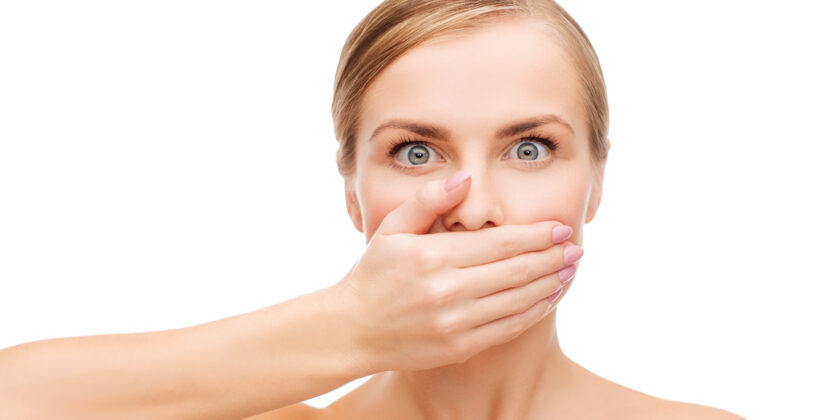If bad breath has you feeling insecure, find comfort in the fact that you’re not alone. Bad breath, also known as halitosis, affects millions of Americans every single day. While it can be caused by things as inconsequential as eating and drinking certain things, it may also be a symptom of more serious oral and overall health problems.
A good oral hygiene routine is the best way to prevent and fight against bad breath. To ensure you’re using the best techniques and tools, be sure to talk to your dentist as soon as possible. Along with helping you create an effective oral hygiene routine, she can determine what is causing your bad breath.
Here are five of the most common reasons for bad breath:
1. Tobacco use
Smoking and chewing tobacco are two of the worst habits for your teeth. Now, it is possible to keep your mouth fairly healthy despite these habits, but quitting is the best way to reduce the risk of serious oral health problems.
Bad breath is one of the most common side effects of tobacco use. Other common side effects include:
- Stained teeth
- Gum discoloration
- Gum disease
- Tooth decay
- Dry mouth
- Loss of taste
We always encourage our patients to quit using tobacco as quickly as possible because of the negative impacts it has on their oral health. Whether you choose to quit or not, we encourage you to visit the dentist more regularly for dental cleanings and exams.
2. Periodontal disease
Periodontal disease, also called gum disease, is the most common oral health problem among American adults. Bad breath is one of the first signs of gum disease and becomes more and more obvious as the disease progresses.
Bad breath occurs because of the plaque that builds up along the gum line and increases as the periodontal pockets fill up with disease-causing bacteria.
Other symptoms of gum disease include:
- Red, swollen gums
- Bleeding gums
- Receding gums
- Loose teeth
- Mouth sores
3. Unclean dental appliances
Dental appliances like braces, retainers, and dentures must be thoroughly cleaned so your mouth remains healthy and bad-odor-free. When patients don’t follow the instructions and recommendations of their dentists, it usually results in bad breath, along with other problems like a bad taste in the mouth, decay, and gum disease.
4. Dry mouth
Dry mouth inhibits oral health because saliva helps clean the mouth of food particles, debris, and disease-causing bacteria.
Certain medications and medical conditions cause dry mouth. Some of the most common causes are diabetes, HIV/AIDS, Alzheimer’s disease, antidepressants, antihistamines, and sleeping with your mouth open.
Although, there is no cure for most of these causes, here are some ways to combat dry mouth:
- Drink plenty of water
- Chew sugar-free gum
- Limit caffeine
- Don’t use a mouthwash that contains alcohol
- Use a room humidifier
Be sure to talk with your dentist to learn other ways to reduce dry mouth.
5. Certain health conditions
You may also experience bad breath because of any of the following health conditions:
- Acid reflux disease
- Metabolic disorders
- Respiratory and tonsil infections
- Sinus problems
- Blood disorders
- Certain cancers
The Best Way to Eliminate Bad Breath
By far, the best thing to do for bad breath is to visit the dentist. In many cases, a regular dental cleaning will do the trick. If not, your dentist will pinpoint the problem while completing a thorough examination of your teeth and gums.
At Dental Care of Lombard, Dr. Julie Glud is passionate about helping patients of all ages achieve and maintain a smile that they are proud of. Contact us today at (630) 629-5700 to schedule your appointment.

